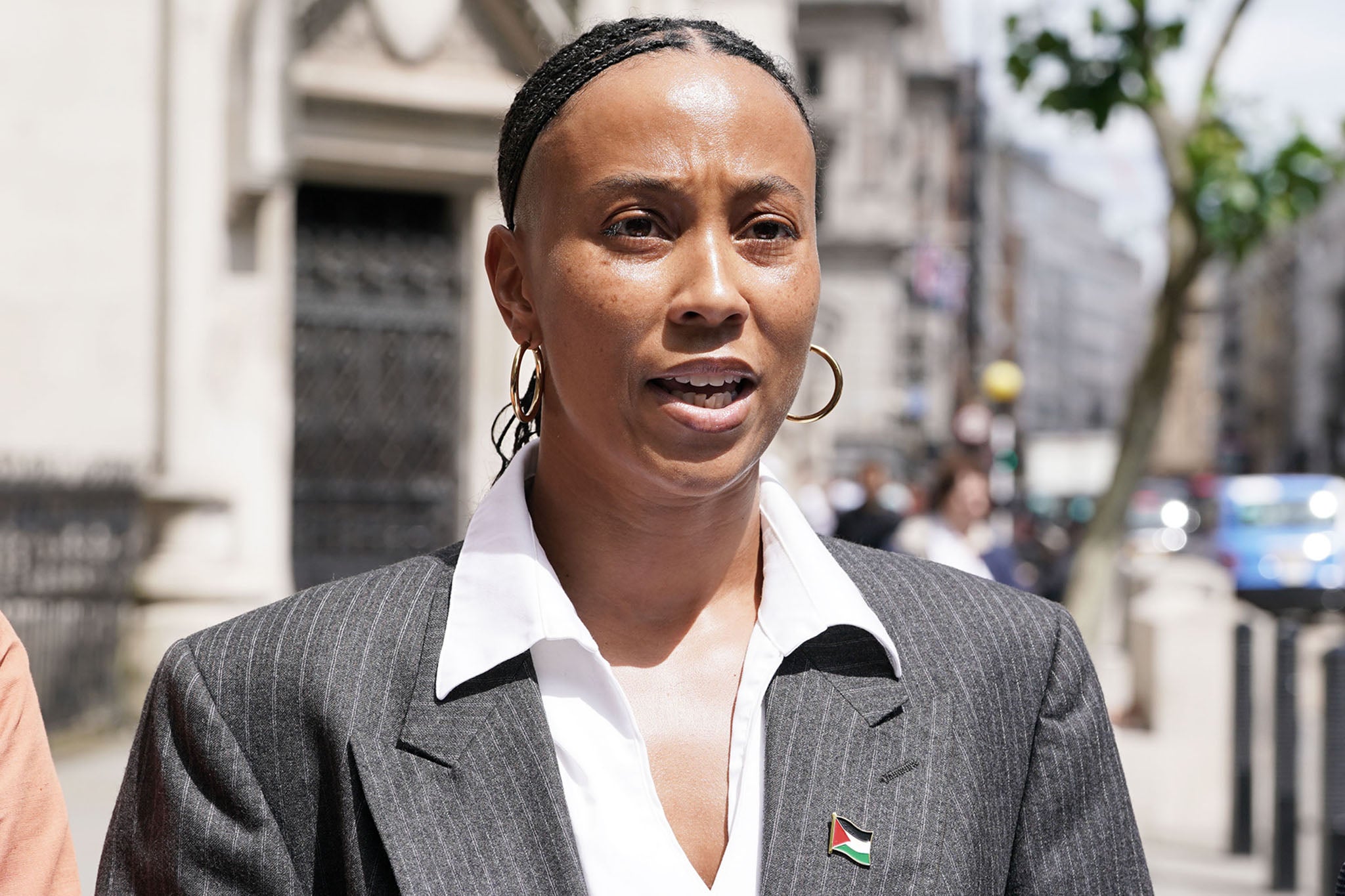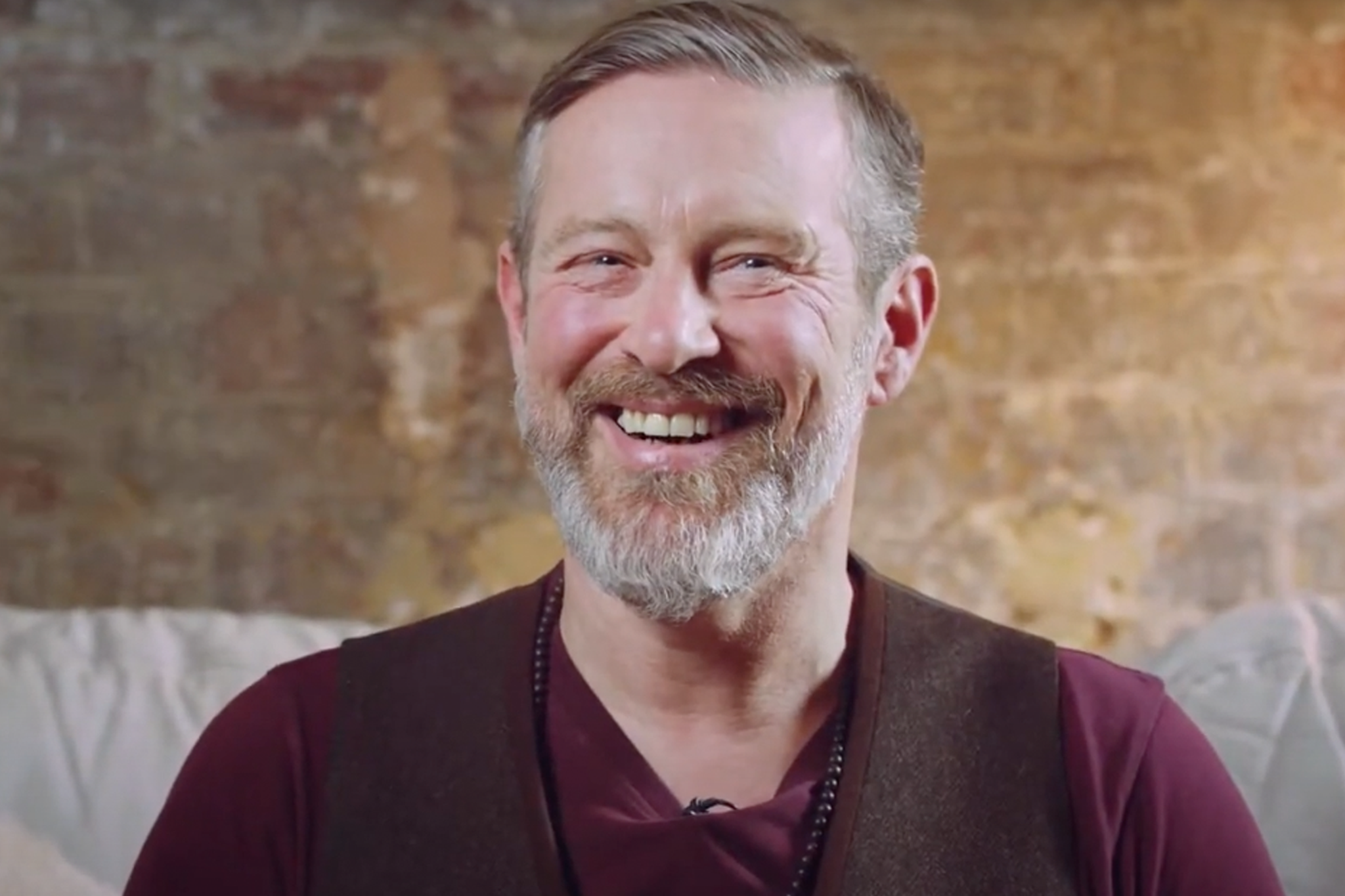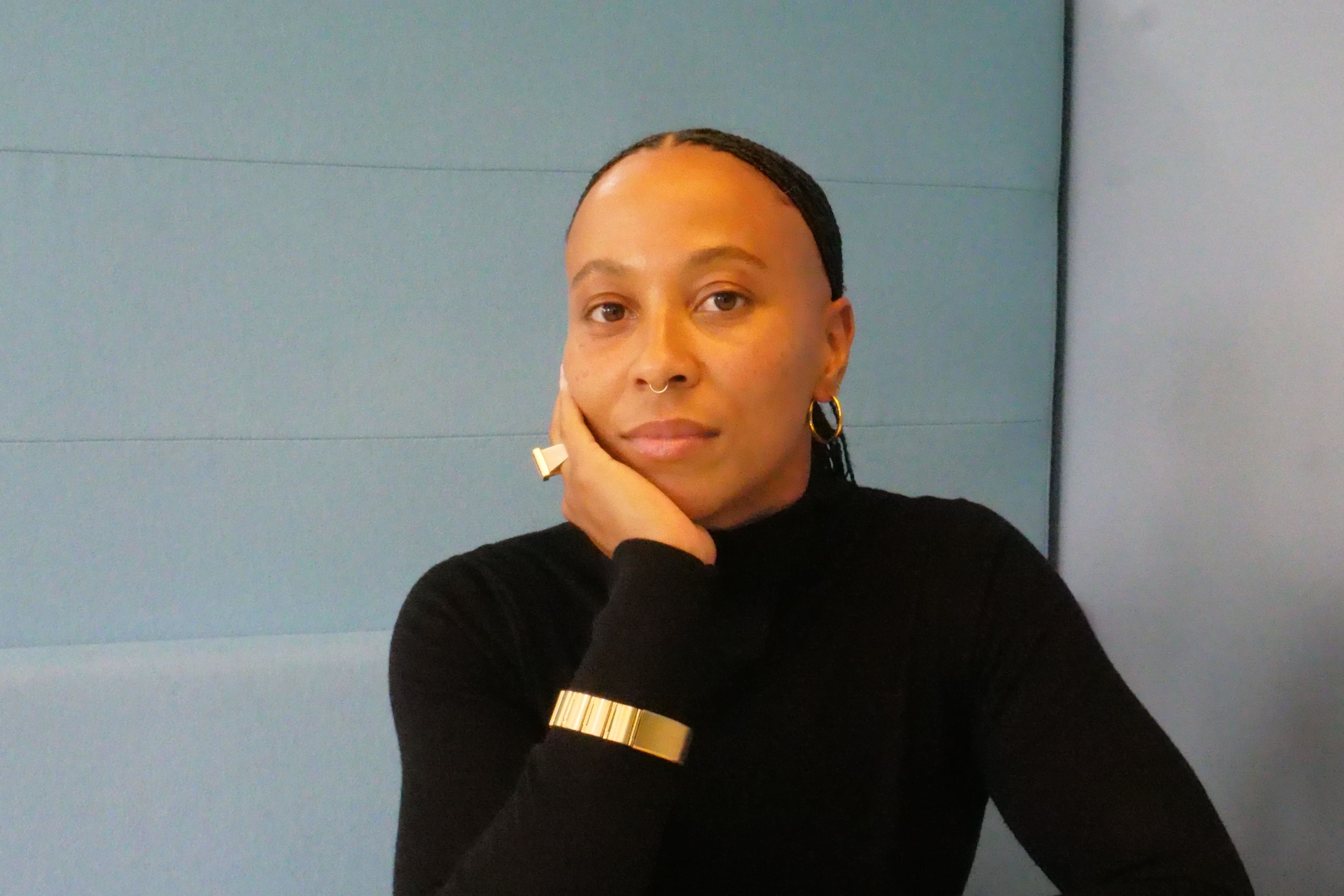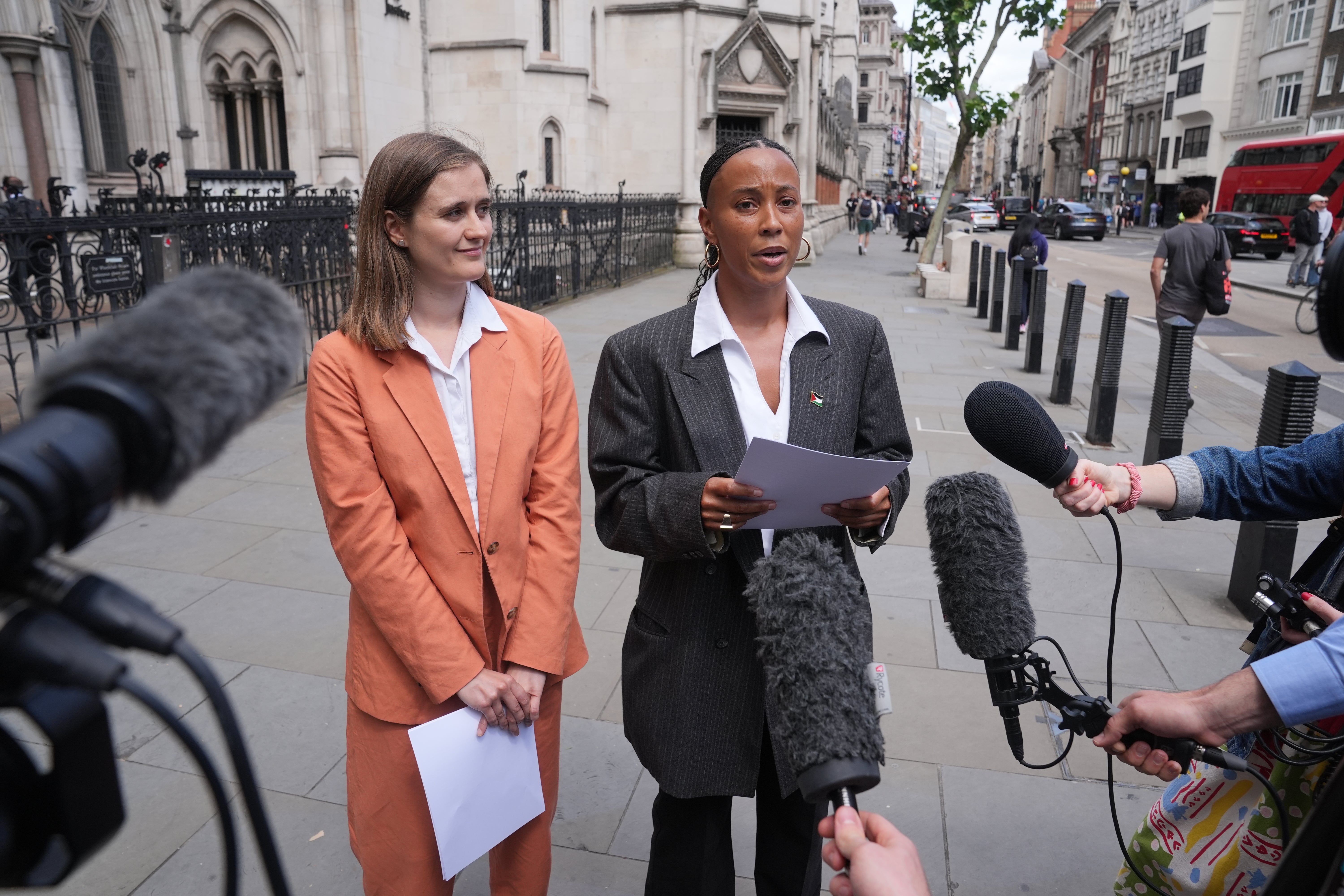How ‘broken’ system allowed disgraced TV sex coach who ‘raped client’ to practise unchecked
WARNING: GRAPHIC CONTENT: Rebecca Thomas speaks to Ella Janneh about her eight year fight for justice after her therapy session with Mike Lousada left her traumatised


A woman who claims she was raped by her sex therapist says her eight-year fight for justice has exposed gaps in the UK’s “broken” system, amid fears rogue practitioners are working unchecked.
Ella Janneh was awarded more than £200,000 in damages on Wednesday after taking out a civil claim alleging sex coach Mike Lousada raped and sexually assaulted her during a therapy session in 2016.
A court found he had regressed Ms Janneh, 37, into a childlike state which induced a panic attack before he penetrated her and committed several sexual acts, to which she could not consent.
Now, after being forced to take her case through the civil courts, Ms Janneh has warned a lack of current regulation allows therapists to have “power unchecked” that leaves vulnerable people exposed to harm.
Ms Janneh told The Independent her eight year battle had been “brutal and all-consuming”.
Have you been impacted by this story? email rebecca.thomas@independent.co.uk

“I cannot tell you, the hours, the days, the months of my life, this has taken from me,” she said. “This is the better half of a decade. I’m just the average person on the street, this should not have had to be my life, to hold one man accountable.
“It doesn’t even stop him from practising, this does not curtail his freedom to harm another person - at every stage, it is totally, just, broken.”
Lousada, who rose to fame after featuring in a book written by feminist author Naomi Wolf, has been a celebrity sex coach for more than a decade. His reach has extended to national TV, press articles, and a series of Durex videos.
Ms Janneh contacted him in 2016 to help with panic attacks she suffered during sex due to sexual abuse she had suffered as a child. She had had two previous sessions with him in 2011 and 2012 when no sexual acts took place.
According to her witness statement, his website looked “really legitimate and professional; like he was the leading therapist in the field.”
There was no indication on his website of penetration being a part of his therapy plans which states he practises “psychosexual somatic therapy.”
However, Lousada told the courts, part of his practise is “therapeutically assisted orgasm, and intervaginal massage or full sexual surrogacy.”

During the assault, he allegedly told Ms Janneh “You have a problem with penetration, so I think we should use my penis energetically to absorb the trauma. The head of the penis can act, like a laser beam and burn up the trauma. Send the trauma to me”.
A witness statement from Lousada’s ex-wife alleges that he learned the “technique” of penetration just two weeks before his session with Ella, from a tantric guru named Shantam Nityama.
Despite losing the civil case, nothing is restricting Lousada from continuing to practise, although he claims he has not treated anyone since the suit was launched.
While impersonating a doctor can lead to a prison sentence, therapists and counsellors are not protected terms and anyone can use them. There are no requirements for private therapists to be regulated by any official body.
In one 2019 podcast he talks of ambitions of working with the NHS, although it is not clear if he ever did.
Lousada attempted to set up his own professional body, The Association of Somatic and Integrative Sexologists, to create ethical codes for his area of work.

However, the judgement on Tuesday revealed Lousada failed to even adhere to these codes and also left the organisation after the incident with Ms Janneh.
Documents presented to the court show the NHS staff who treated Ella at the sexual assault referral clinic had serious concerns over Lousada’s method of using sex as therapy.
One email said: “Whilst the trust would normally pursue those concerns through safeguarding and regulatory channels, the alleged events happened outside the jurisdiction of the trust and apparently with no adequate regulatory framework.”
In another, they wrote: “I know a charge of rape is notoriously hard to take to court but there is so much here that speaks against unprofessional and damaging practise that needs to be challenged in the wider public interest. I suppose I’m just concerned this is not lost if the focus is too narrowly on the charge of rape.”
Speaking after the judgement on Monday, Catriona Rubens, the lawyer from Leigh Day who represented Ella, warned that there could be more rogue therapists operating due to the lack of regulation.
“There is nothing to prevent it being the case, the nature of a lot of therapy is a lot of people go to therapy when they’re feeling vulnerable,” she said. “Regulation is currently completely lacking in the UK, unless a therapist chooses to register with a body, there is nothing stopping them from having glossy impressive websites calling them trauma-informed therapists and there’s no protection over what they mean and I think members of the public don’t know there is no regulation.”
Ms Rueben said one initial safeguard could be changes to legislation to make coercion within therapy a criminal act.
In May 2018, the Crown Prosecution Service told Ms Janneh they would not be pursuing a criminal conviction which forced her into her civil battle. To succeed in a civil case you need to satisfy a lower burden of proof that the claims are true on the ‘balance of probabilities’, rather than the criminal standard of ‘beyond reasonable doubt’.
She told The Independent she also felt “completely mistreated” by the police when she made her initial complaint.
“I think they did the bare minimum with my case,” she said “I didn’t feel like they took me seriously.
“Nobody wants to put their face to rape, nobody wants to say, he digitally penetrated me and spat on me; to have my sex life and my private life and, and my genitals spoken about as a matter of course, in multiple rooms of people.
“But that’s what has been necessary, to turn myself into a specimen, to be able to drive forth a conversation about a justice system that is not working.”
On the CPS’s failure, she added: “How do you square letting this man in power and authority continue to have access to vulnerable people? When I walked out of his clinic and I wanted to die? How do you square that?”
The CPS said: “Criminal and civil cases require different standards of proof. In criminal cases we must prove beyond reasonable doubt that an individual is guilty and following a careful review of the evidence in this case, we concluded there was not a realistic prospect of conviction – a decision later supported by two independent reviews.”
Following the court ruling, Lousada said in a statement: “I have told both the police and the court what happened that day, and you will appreciate that I am very disappointed that my evidence has been rejected.
“I no longer engage in this sort of work and have not done so since the incident in question. I was seeking to help Ms Janneh and never intended to cause her any harm. I have always regretted the outcome and the effects on her, and I wish her well for the future.”
Rape Crisis offers support for those affected by rape and sexual abuse. You can call them on 0808 802 9999 in England and Wales, 0808 801 0302 in Scotland, and 0800 0246 991 in Northern Ireland, or visit their website at www.rapecrisis.org.uk. If you are in the US, you can call Rainn on 800-656-HOPE (4673)
Bookmark popover
Removed from bookmarks